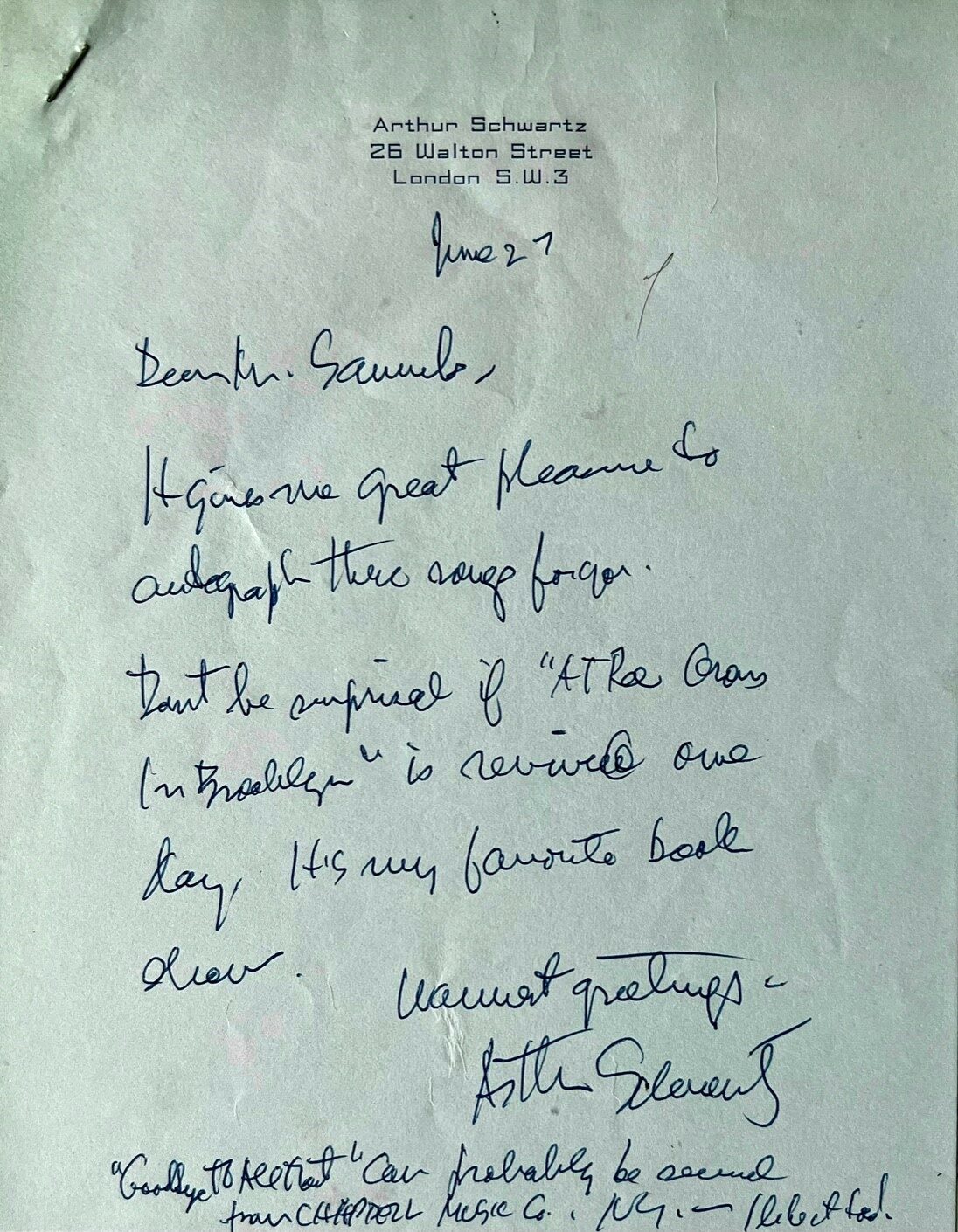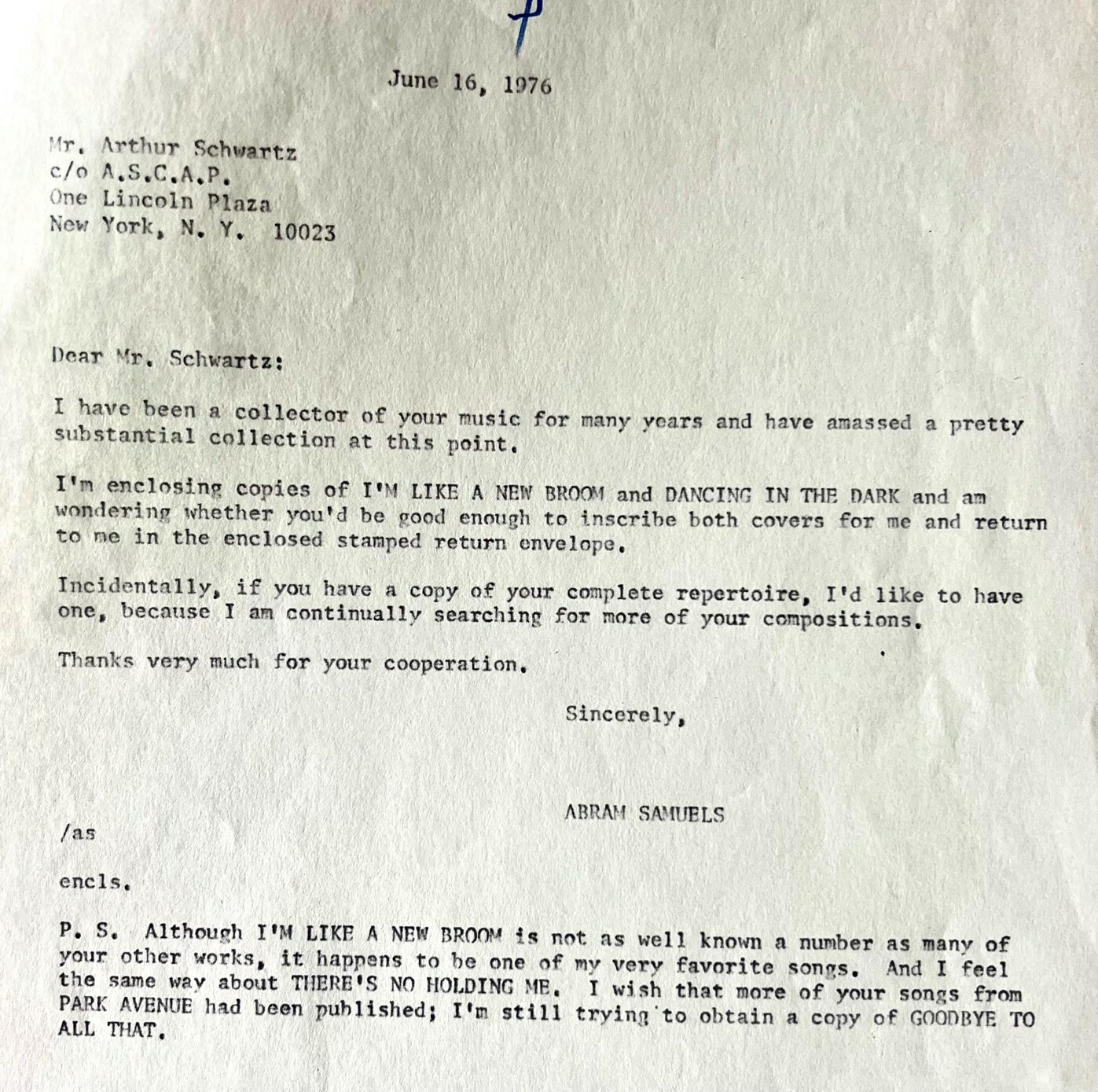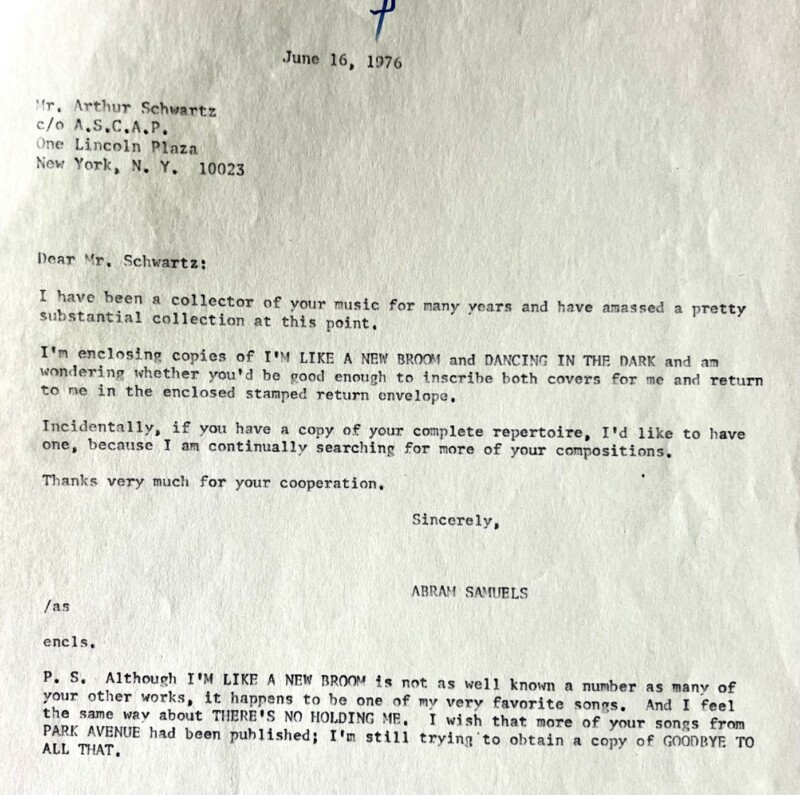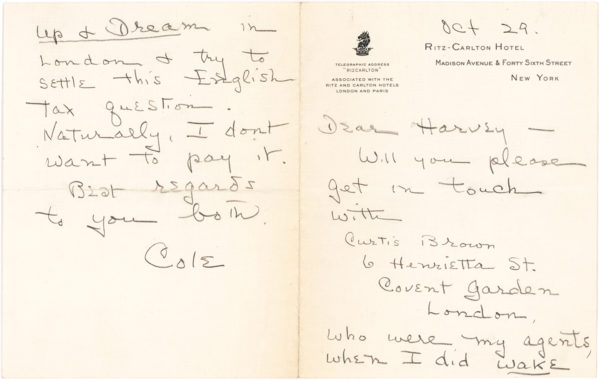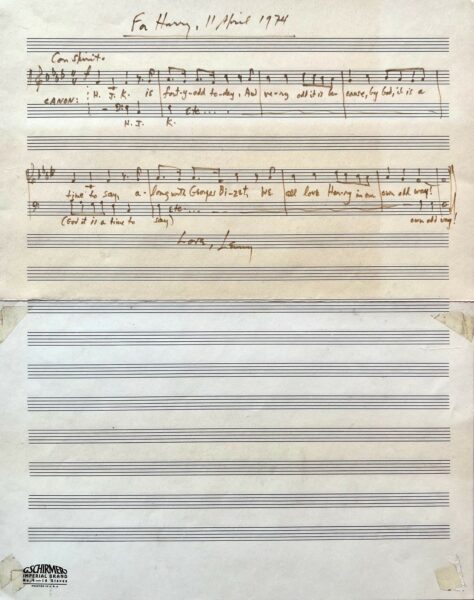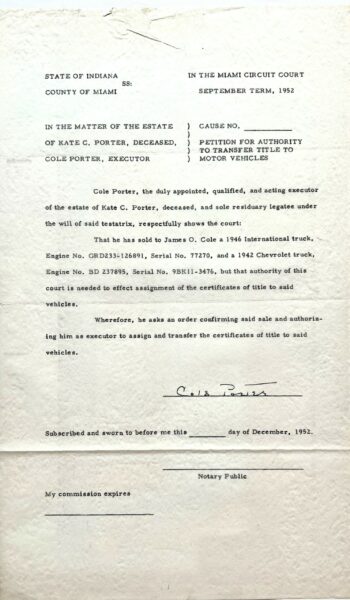SCHWARTZ, ARTHUR. (1900-1984). American composer known for his contributions to the Great American Songbook with collaborator Howard Dietz. ALS. (“Arthur Schwartz”). 1p. Small 4to. London, June 27 (1976). On his London stationery. To ABRAM SAMUELS (1920-2005), businessman, pianist, composer, and guest lecturer at Muhlenberg and Cedar Crest Colleges.
“It gives me great pleasure to autograph these songs for you. Don’t be surprised if ‘A Tree Grows in Brooklyn’ is revived one day. It’s my favorite book show. Warmest greetings… ‘Goodbye to All That’ can probably be secured from Chappell Music Co. N.Y. I like it too
A self-trained musician and practicing attorney, Schwartz published his first song in 1923 and went on to became one of the most successful songwriters of his age. Although he collaborated with Ira Gershwin, Oscar Hammerstein, Frank Loesser, and Johnny Mercer, it is for his fruitful collaboration with Howard Dietz that he is best known, the pair composing such musicals as The Band Wagon and songs as “By Myself,” “Alone Together,” “Something to Remember You By,” and “That’s Entertainment.” Produced in 1951, A Tree Grows in Brooklyn was based on Betty Smith’s 1943 novel of the same name and ran for 267 performances. In 1946, Schwartz collaborated on the cynical musical comedy Park Avenue, with George S. Kaufman and Ira Gershwin, which included the song “Goodbye to all that.” However, the show was poorly received, and ran for only 72 performances, closing in January 1947.
“From 1969 for several years Schwartz worked in London, his second wife’s home, where he contributed to British television broadcasts and wrote a musical adaptation of Charles Dickens’s Nicholas Nickleby. He also revised A Tree Grows in Brooklyn with eight new songs as Look Who’s Dancing,” for an unproduced revival, hinted at in our letter, (“Howard Dietz and Arthur Schwartz,” https://masterworksbroadway.com/artist/howard-dietz-and-arthur-schwartz/, Cross).
Stapled to a carbon copy of Samuels letter to Schwartz from June 16, 1976. In very fine condition. Uncommon.

